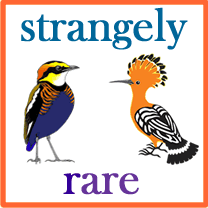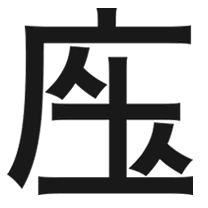
Here’s a recording in a mystery language.
Do you know or can you guess the language, and do you know where it’s spoken?

Here’s a recording in a mystery language.
Do you know or can you guess the language, and do you know where it’s spoken?
An interesting Danish word I learnt recently is småkage [ˈsmʌˌkʰæːjə], which means biscuit or cookie, or literally “small cake” [source].
The Dutch word koekje [ˈkuk.jə], meaning cookie, is a diminutive of koek (cake), so you could say the it means “small cake” as well. It was borrowed into English and became cookie. This was borrowed back into Dutch as cookie to refer to internet cookies [source].
The word kage [ˈkʰæː(j)ə] (cake) comes from the Old Danish kakæ, from Old Norse kaka (cake), from Proto-Germanic *kakǭ (cake), from the Proto-Indo-European *gag-/*gōg- (round, ball-shaped object; lump; clump). The Dutch word koek comes from the same Proto-Germanic root [source].
The English word cake comes from the same Old Norse root, and has been borrowed by a number of other languages [source], including Dutch, where it became kaak [kaːk] (ship biscuit) and cake [keːk] (pound cake).
In French the word cake [kɛk] refers to fruitcake (containing rum) or quick bread (a smallish loaf-shaped baked good). In Portuguese it became queque [ˈkɛ.kɨ], meaning a muffin or cupcake – the same word in Spanish, pronounced [ˈkeke], refers to a cake, cupcake or biscuit.
The plural form cakes was borrowed into Danish and became kiks [ˈkʰiɡs] – a cracker. In German it became Keks (biscuit / cookie), which was borrowed into Russian and became кекс [kʲeks], which means cake, fruitcake, cupcake, dude or guy. This sounds a bit like the word kecks, which in northern England and Scotland is a slang word for trousers and/or underpants, from kicks (breeches).
Here’s an audio version of this post.
(Some audio by TTSMP3.com)
Incidentally, the photo above shows what I would call cookies. The one below shows what I call biscuits:
Not everyone would agree with this, perhaps, and apparently some might call these biscuits:
They look more like scones to me.
What are biscuits / cookies to you?
The word inauguration seems an appropriate one to investigate today. According to Wiktionary, it means “The act of inaugurating, or inducting into office with solemnity; investiture by appropriate ceremonies.” or “The formal beginning or initiation of any movement, enterprise, event etc.”.
Inauguration comes from the Middle French inauguration (installation, consecration), from the Latin Latin inaugurātiō (consecration or installment under good omens), from the Latin inaugurāre (to take auspices, take omens from the flights of birds, divine, consecate, install), from in (in, on) and augurō (to prophesy, interpret omens), from augur (augur, soothsayer) [source].
The origins of augur are uncertain – it might come from avis (bird) and garrire (to talk). As augury involved observing the flight of birds and divining omens from it, this makes sense. Alternatively it might come from the Old Latin *augus (increase) [source].
Incidentally, a soothsayer – one who predicts the future using magic, intuition or intelligence – originally meant one who tells the truth. It comes from sooth an old word for truth, augury, blandishment or reality, and sayer, one who says or makes announcements or a crier [source].
Here’s an audio version of this post.

Here’s a recording in a mystery language.
Do you know or can you guess the language, and do you know where it’s spoken?

An interesting Dutch word I learnt recently is raar [raːr], which looks and sounds a bit like the English word rare, and is related to it, but actually means wierd, strange, funny, odd or unusual.
Here are some examples of how it’s used (from Reverso):
Raar comes from the Middle Dutch raer (rare, unusual), from the Latin rarus (scattered, seldom, few, rare, uncommon, thin, loose), ultimately from the Proto-Indo-European *h₁reh₁- (to separate) [source].
From the same root we get words in quite a few other languages, including:
Another Dutch word for strange is vreemd [vreːmt] (strange, weird odd, foreign) [source].
The Dutch word for rare is zeldzaam [ˈzɛlt.saːm], which also means scarce or uncommon. This comes from the Proto-Germanic *seldasiuniz (rarely seen), from *selda- (rare) and *siuniz (sight) [source].
The German word seltsam (strange, weird, odd, funny, curious) comes from the same root [source], as does the rare English word seldsome (rare, uncommon) [source].
The English word seldom (infrequently, rarely), comes from the Proto-Germanic *seldanē (seldom; rarely), from *seldanaz (rare) [source].
Here’s an audio version of this post.
(Some audio by TTSMP3.com)
Here’s a song I wrote a few years ago that seems to fit with today’s topic: It’s Okay To Be Odd

Here’s a recording in a mystery language.
Do you know or can you guess the language, and do you know where it’s spoken?

In Danish, one way to say that you like something or someone involves suffering: jeg kan godt lide, or literally “I can good/well suffer”. The negative version is jeg kan ikke lide (“I cannot suffer”).
Here are some examples (from bab.la):
The English expression I do not suffer fools gladly has a similar structure. A version of this phrase first appeared in the Bible as, “For ye suffer fools gladly, seeing ye yourselves are wise.” (2 Corinthians 11:19 – KJV). It is usually used in the negative these days though [source].
Another way to say you like something in Danish is to say that you think about it. For example, jeg synes om sprog = I like languages (“I think about languages”). As well as to like, synes om also means to love or appreciate [source], and synes means to think (about), seem or reflect on [source].
In English you might say that you think well of someone or something, although this might sound a bit old fashioned.
Similarly in Swedish, saying that you think about something/someone – tycka om, means that you like, enjoy, appreciate, get off on, relish or are fond of it/them [source]. If you really like or love something or someone, you could say that you think much about them, or tycka mycket om.
Here are some examples (from bab.la):
Another way to say you like something/someone in Swedish is gilla, which means to like, approve, favour, go for, hold with or be fond of [source]. For example, han gillar choklad – he likes chocolate.
In Spanish the most common way to say you like something is to use the verb gustar (to be pleasing, to taste), e.g. me gusta el té = I like tea, or literally “(to) me pleasing the tea” [source]. You could say in English that something is to your taste, or if you don’t like it, it’s not your cup of tea.
Here’s an audio version of this post.
(Danish, Swedish and Spanish audio by TTSMP3.com)
What other interesting ways are there to say you like or don’t like things?

Here’s a recording in a mystery language.
Do you know or can you guess the language, and do you know where it’s spoken?

The Japanese word 離れる (hanareru) means to be separated, to be apart, to be distant; to leave, to go away; to leave (a job, etc), to quit, to give up; to lose connection with; to drift away from [source].
It seems quite an appropriate word for this year, and the winner of this year’s kanji invention contest came up with a new kanji to represent these ideas (see the image). It’s pronounced hanarete suwaru or za and means ‘seated apart’ or ‘social distance’.
Social distancing is also ソーシャルディスタンス (sōsharudisutansu) in Japanese.
The new character is based on 座 (suwaru / za) with one of the 人 (hito – person) characters moved to be more distant from the other. 座 means seat, place; position, status; gathering, party, company; stand, pedestal, platform [source].
The kanji contest or, 創作漢字コンテスト (sōsaku kanji kontesuto), is sponsored by the Sankei Newspaper (産経新聞社) and the Shizuka Shirakawa Memorial Institute for Oriental Characters and Culture (白川静記念東洋文字文化研究所) at Ritsumeikan University (立命館大学). It has been held annually for the past 11 years. Over 26,000 entries were submitted this year – mainly from Japan, and some from Taiwan as well, and the winner was Akinobu Yamaguchi (山口明伸) from Yokohama. You’d think there were more than enough kanji already, but obviously not.
I heard about this via Facebook, and it got me wondering if I could come up with any new kanji or hanzi. Have you thought of any new kanji?

Here’s a recording in a mystery language.
Do you know or can you guess the language, and do you know where it’s spoken?